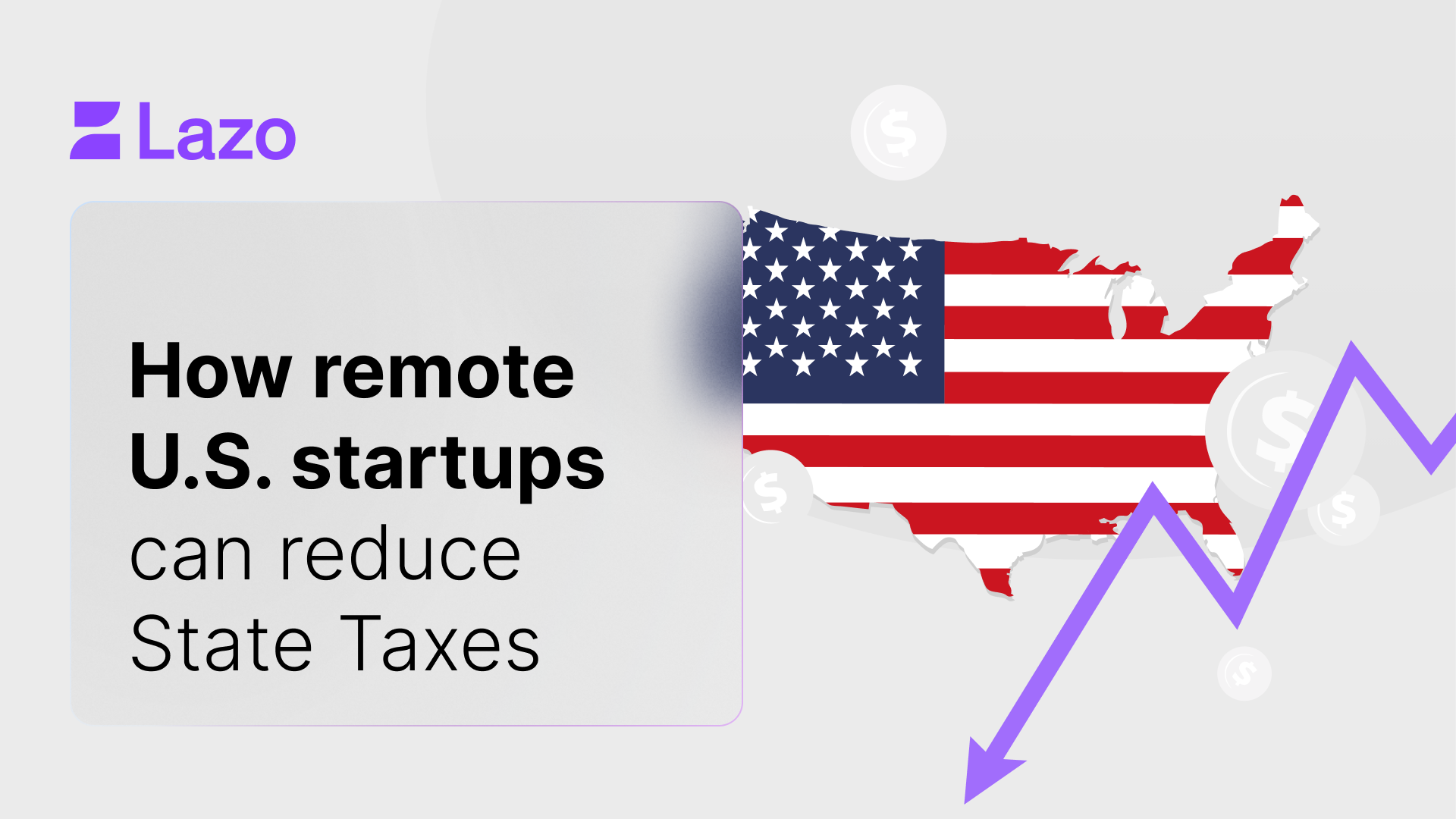Login to your Lazo One account here
Login

The rise of remote work has transformed how startups operate — offering flexibility, cost savings, and access to global talent. Yet this freedom comes with complexity: state income tax. For remote-first U.S. startups, understanding where you owe taxes has become a multi-state challenge that can’t be ignored.
This guide explains the essentials of how to minimize state income tax for your remote-first startup — helping you stay compliant, reduce liabilities, and prepare for scalable growth.
The foundation of multi-state taxation is nexus, meaning the level of connection a business has with a state that allows that state to tax it. In a remote-first world, nexus is easier to trigger than ever — sometimes by a single employee.
Each state defines nexus differently for income, sales, and payroll taxes. What qualifies in one state might not in another, making compliance a nuanced challenge.
If you operate remotely, your taxes must reflect where your people and revenue are — not just where you incorporated.
For remote-first startups, these are the most common ways nexus — and therefore state income tax obligations — arise:
Ignoring these triggers can result in fines, back taxes, and red flags during investor due diligence.
Lazo helps startups centralize compliance through streamlined bookkeeping and payroll systems that track nexus automatically.
Minimizing state income tax exposure requires planning and continuous monitoring. Here are key tactics to help your remote-first startup stay compliant:
For a deeper look at cross-state registration, thresholds, and filings, explore our full guide on how to manage taxes if your startup operates in multiple states a practical roadmap to mastering multi-state compliance for your remote-first startup.
As your team grows, minimizing state income tax becomes an operational necessity. Multi-state compliance isn’t just a finance task — it’s part of your startup’s infrastructure.
For international founders expanding into the U.S., understanding state income tax nexus adds another layer of complexity. Each state has different filing requirements, deadlines, and audit rules.
Partnering with Lazo ensures your filings, payroll, and corporate structure all align with multi-state tax requirements. You focus on growth — we handle the compliance.
A remote-first startup can thrive anywhere — but only if it manages its state income tax obligations smartly. Proactive planning, precise records, and expert guidance are your best tools to stay compliant and investor-ready.
With Lazo, founders get end-to-end support to:
Ready to reduce complexity and minimize state income tax risks?
Schedule a call with our tax experts, explore pricing, or join our webinars to learn how remote-first startups master compliance.